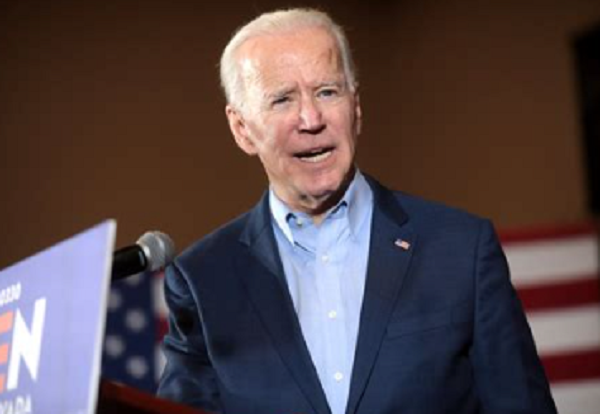Democratic President Joe Biden has recently made the decision to cancel several significant natural gas projects in response to mounting pressure from climate activists.
On Friday, the White House made an announcement stating that any pending decisions regarding the export of Liquefied Natural Gas (LNG) to non-FTA countries would be put on hold until the Department of Energy could update the underlying analyses for authorizations. In light of the demands from climate activists, federal officials will now conduct a thorough environmental review to assess the carbon emissions associated with these projects. However, it is anticipated that these reviews may take more than a year to complete.
This decision has caused disruption to projects worth billions of dollars, putting over 70,000 jobs at risk. Critics argue that President Biden’s actions will negatively impact Europe’s ability to power its economy without relying heavily on Russian gas
“The pause could have implications for more than a dozen proposals now awaiting review at the Energy Department, including ventures planned in Louisiana by Commonwealth LNG and Energy Transfer LP,” Bloomberg reported.
In recent weeks, climate activists have vocally targeted LNG export projects, asserting that these initiatives will result in a significant increase in carbon emissions and exacerbate the issue of global warming.
“As our exports increase, we must review export applications using the most comprehensive up-to-date analysis of the economic, environmental, and national security considerations,” Energy Secretary Jennifer Granholm told reporters on a press call.
“This action includes a pause on pending applications for exports of U.S. natural gas as LNG to non-free trade agreement countries until the department can update the underlying analyses for authorizations.
“The U.S. is committed to affordable energy and economic opportunities for all Americans.
“We are committed to strengthening energy security here in the U.S. and with our allies,” Granholm continued.
“And we’re committed to protecting Americans against climate change as we lead the world into a clean energy future.”
A senior administration official informed reporters that although it is uncertain which proposed projects will be affected, there are at least two projects with a larger capacity and two projects with a smaller capacity that will be impacted by the action. Another official stated that the pause, which was implemented on Friday, will only have an effect on projects that have completed the lengthy approval process of the Federal Energy Regulatory Commission (FERC) and are now awaiting approval from the Department of Energy (DOE).
Based on the most recent federal data, there are currently 11 projects that have received approval from FERC but have not yet commenced construction. Additionally, there are four projects that are still pending before FERC, and two projects that are in the pre-filing stage.
The six projects that are not yet before the DOE will not be affected by the pause. However, if these projects receive approval from FERC, they will be impacted by the pause.
“From day one, we have looked out for frontline communities from day one,” White House “climate czar” Ali Zaidi said.
“From day one, we have stood with our allies and partners.
“That’s how Joe Biden leads on climate change.
“And when it comes to the climate crisis, we square our shoulders, we take on the challenge in front of us, we lean into the solutions and, yes, we transition globally away from fossil fuels.
“That is the solution, that is the strategy that the president has articulated.”
“As the department steps forward in this way under Secretary Granholm’s leadership, I think it’s important to note the context in which this happens,” Zaidi added.
“We’re doing this weeks removed from a U.N. climate conference where the United States, under President Biden’s leadership, was out front making sure that the global community was clear-eyed about the need to transition globally away from fossil fuels.”
Opposition to LNG export terminals has been expressed by Democrats and environmentalists who claim that these facilities would cause harmful pollution and contribute to global warming. This contentious issue has prompted activists to share videos on social media, which have garnered millions of views in the past two months. Furthermore, numerous environmental groups wrote a letter to Granholm in December, urging her to reject the development of LNG projects in order to protect the climate and communities.
Shortly after, 170 scientists associated with the United Nations sent a letter to President Biden, requesting him to reject pending LNG facilities. Bill McKibben, a prominent climate activist, recently announced plans to organize a civil disobedience protest outside the Department of Energy’s headquarters in Washington, D.C., to protest against the approval of new LNG export terminals. He intends to replicate the successful protests that played a role in the nationalization of the Keystone XL pipeline fight during the Obama administration.
On the other hand, proponents of additional LNG export facilities argue that these projects are crucial in meeting the energy demand in Europe and Asia, particularly as countries seek to reduce their reliance on Russian natural gas supplies. In late January, a group of oil and gas advocates wrote a letter to Energy Secretary Jennifer Granholm, expressing their opposition to the proposed changes in the permitting process for U.S. LNG exports.
They announced:
“While our European allies have made significant strides in reducing their reliance on Russian natural gas thanks to American energy producers, Europe faces a considerable supply gap over the long-term that should be met by American energy, not hostile nations.
Moving forward with a pause on U.S. LNG export approvals would only bolster Russian influence and undercut President Biden’s own commitment to supply our allies with reliable energy, undermining American credibility and threatening American jobs.
An analysis of the President’s pledge to Europe found that the benefits to the United States could include $63 billion in capital expenditures, a GDP boost of $46 billion, and 71,500 jobs supported annually from 2025-2030.”






